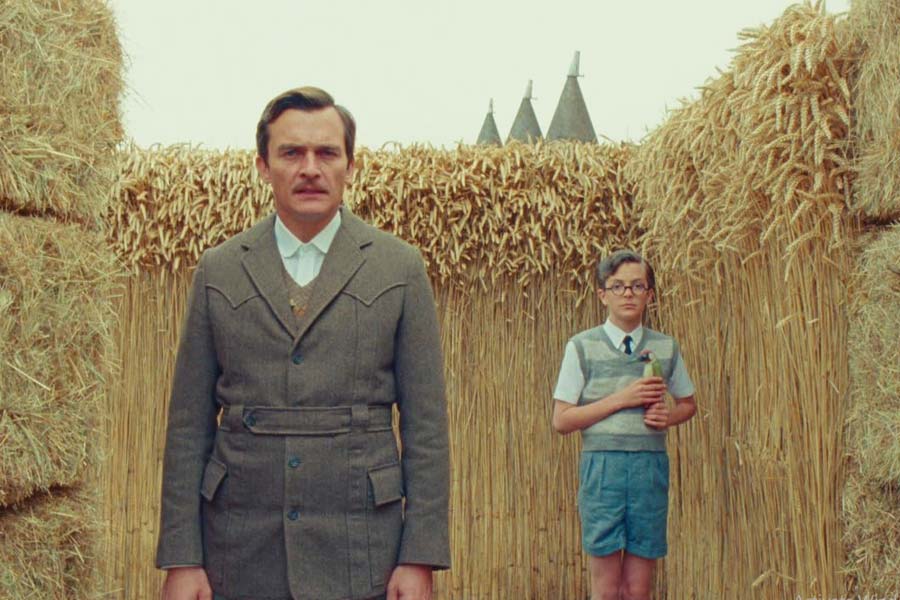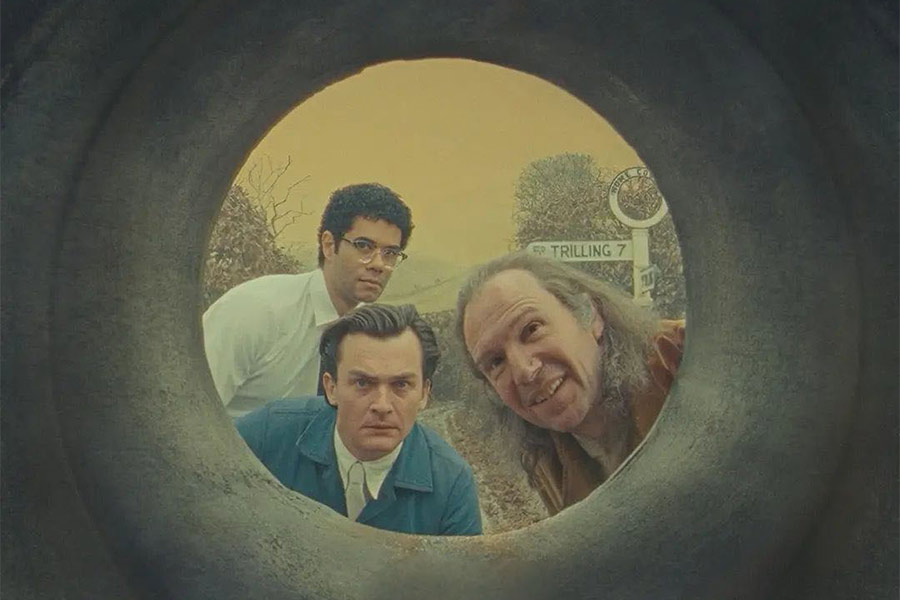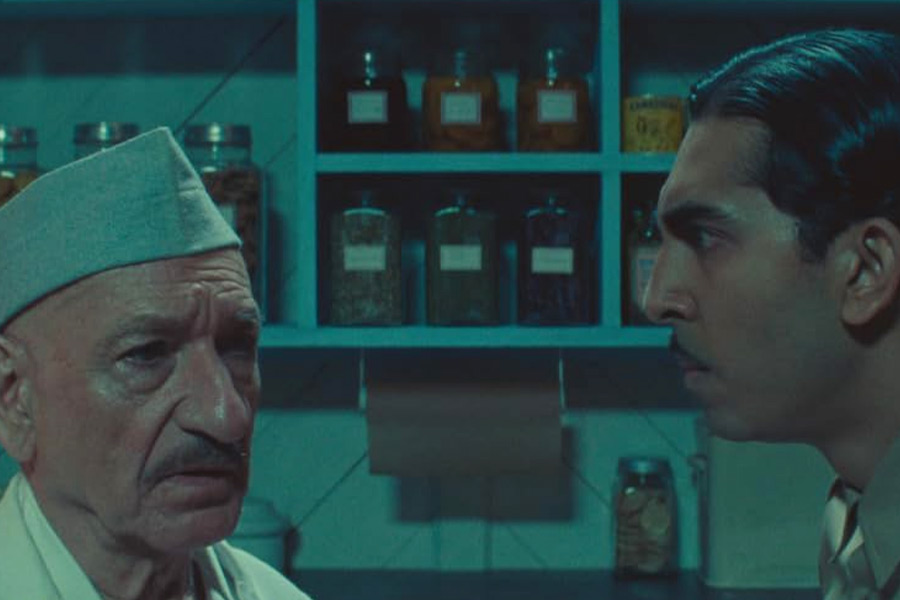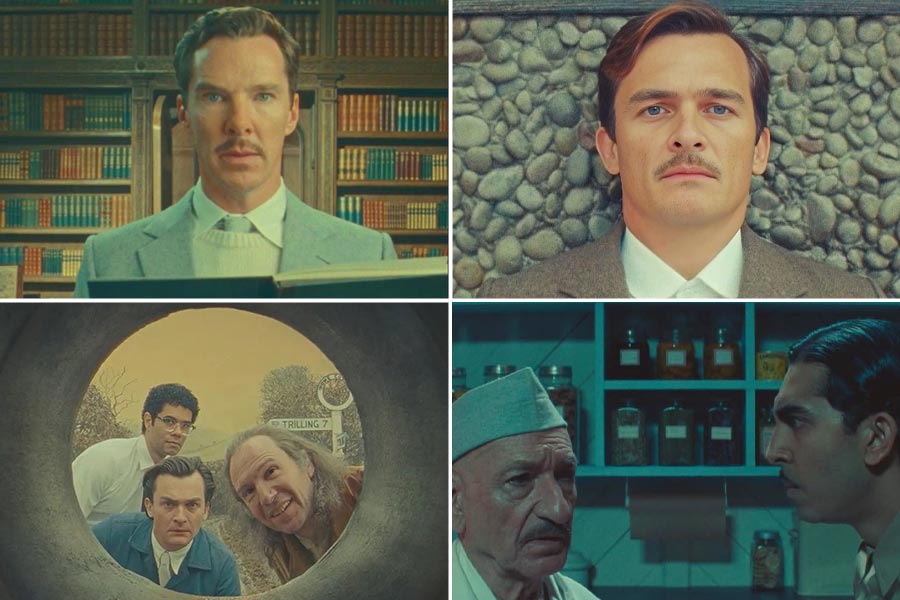Wes Anderson’s four new short films — The Wonderful Story of Henry Sugar, The Swan, The Rat Catcher and Poison — based on Roald Dahl’s short stories are no ordinary book-to-film adaptations. They come with a twist. Combined with the American director’s unusual style of storytelling and pastel yellow colour palette, Dahl's characters take the authorial voice, become storytellers and constantly break the fourth wall.
Yet, it's not just a simple fourth wall break. The films are unique in the sense that they are propelled by the characters reading off exact monologues from Dahl's stories in a rapid-fire motion with a dead-pan expression. They move in a clockwork fashion, speak with the same precision and whimsy with which Dahl wrote his stories and shuffle the roles and voices to create a heartfelt anthology. It makes the stories come to life in a theatrical manner, with visible stage hands and uncanny, vintage aesthetics. Here's a look at the 54-year-old filmmaker's latest films that are streaming on Netflix.
The Wonderful Story of Henry Sugar
In this Anderson masterpiece, the tale centres on Henry Sugar (Benedict Cumberbatch), a wealthy and greedy man who stumbles upon a life-changing report by Calcutta-based doctor Dr Z.Z. Chatterjee (Dev Patel) in 1935. The report chronicles the remarkable Imdad Khan (Ben Kingsley), a renowned member of a Kashmiri travelling theatre troupe who had the extraordinary ability to see without using his eyes.
Imdad's story unfolds through Chatterjee's account, revealing his escape from home and fortuitous encounter with the Great Yogi (Richard Ayoade) at age 17. The yogi possesses the ability to levitate and perceive the world with closed eyes. He imparts a unique meditation technique to Imdad, unlocking his hidden talent of seeing things with his eyes closed.
Henry becomes captivated by Imdad's story and diligently starts practising, eventually acquiring the same abilities. With his newfound powers, he undergoes a transformation, forsaking his once insatiable greed. Henry resolves to use this extraordinary gift for the betterment of the poor.
The Wonderful Story of Henry Sugar showcases Anderson's signature storytelling style where characters stoically bring Dahl's tales to life by simply reading from the pages. Ralph Fiennes portrays Roald Dahl, occasionally stepping in to make his point.
The actors shuffle between roles as they play different characters within the same film, which makes the stories even more bizarre. Anderson's short films are, therefore, a delight for book lovers, offering adaptations that bring beloved characters to life, echoing the author's voice.
The Swan
The Swan is a dark fable-like story about bullying, cruelty, loss of innocence and the death of a child’s dreams. It begins with a 27-year-old Peter Watson (Rupert Friend) narrating a day in his life from his childhood when he was bullied severely by two boys who had recently been given a rifle by their father. A grown-up Peter revisits his childhood trauma and remembers one particular incident which involved the bullies asking him to wear the wings of a dead swan and fly away from the branch of a willow tree.
The film is an emotional rollercoaster despite the characters being heartless while making eye contact with the camera and reading their lines like robots. The last scene is the highlight of the film which depicts the dead swan and Peter as one, both victims of the cruelty inflicted upon them by those in power.

The Rat Catcher
Unlike the other shorts, The Rat Catcher is open-ended. The plot is centred on Rat Man (Ralph Fiennes) who tells a reporter (Richard Ayoade) and a mechanic (Rupert Friend) about the cleverness of rats and how one has to be cleverer than them in order to catch them. Resembling a rat with long front teeth and dirty nails, the Rat Man symbolises a social outcast, someone who will never be accepted by others because of his bizarre interests. However, he is just as clever and cunning as rats. The story concludes with an open-ended twist which leaves the other characters disgusted.

Poison
Poison is set in India under British rule. When Dev Patel’s Woods returns home, he finds his friend Harry (Benedict Cumberbatch) lying still in bed. He is petrified because he thinks there is a vicious snake resting on his belly. Woods immediately rings up Dr Ganderbai (Ben Kingsley) and the duo try all means to get the snake off Harry’s stomach — they inject him with anti-venom and the snake with chloroform.
The film depicts power dynamics and racism which renders a person weak. This is seen when the question of whether a snake was at all present arose and Harry hurled a racist slur at Ganderbai. The snake and the poison are all symbolic of the monsters within ourselves. At the end, the question is, who is the real monster — is it the snake whose existence is doubtful or is it Harry who exercises his superiority over another race?












